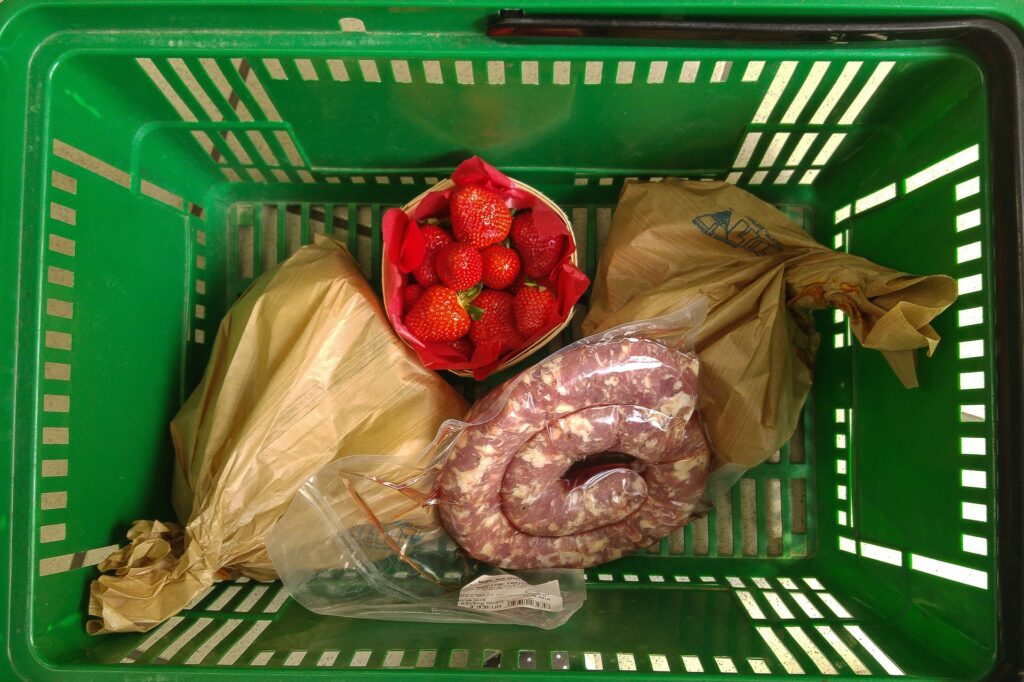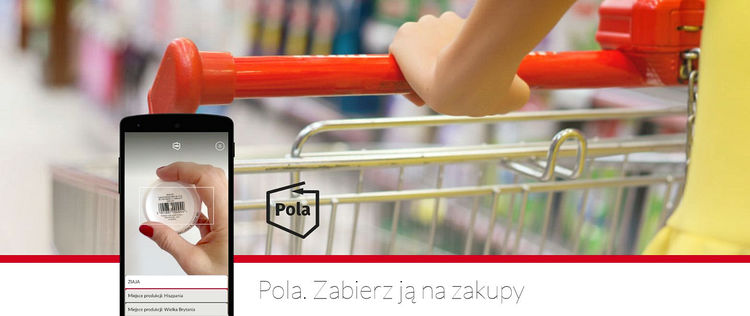The so called economic patriotism of Poles is getting stronger. Increasingly, Poles are guided by the following principle: “When I buy domestic products, I support the development of Polish producers and the Polish economy”. However, is it easy to be a patriotic consumer?
When can one say that Poles are patriotic consumers?
According to research carried out by Open Research specialists, most Poles (more than 50%) demonstrate patriotic behaviour when they buy products in grocery shops. Groceries are products where the “Made in Poland” sign has the greatest influence on consumers’ choice. This is why the Polish origin of fruit, vegetables, dairy products or meat should be clearly indicated on the packaging. This is valuable information which staff from marketing or sales departments can find in the Open Research report.
Poles also willingly buy Polish furniture (41%), as well as banking and insurance products (also 41%). However, they do not demonstrate such great patriotism in the case of radio and television, or household goods. In this case, the Polish origin of a product will discourage 20% of buyers, although 38% of consumers say that they do not pay much attention to it. In this line of business customers usually associate quality with products manufactured in the USA or Japan.
Poles are not very patriotic when it comes to the purchase of cosmetics and domestic detergents, as only every third user chooses Polish cream or washing powder. This is obviously changing for the better, due to the growing awareness of consumers and the growth of popularity of, for example, Polish cosmetics abroad. However, domestic detergents from Germany are still selling very well in Poland.
A product is better because it is Polish
On the other hand, one can notice that Poles are more and more sceptical towards western companies that offer products “made in China” and do not trust western technology as much as they used to. More and more often they choose Polish products and Polish solutions. They do this, not only to support the Polish economy, but mainly because they believe these products are better.
Poland boldly competes with well-known international brands in many areas. For example, in 2015, Polish high-tech companies were among the leaders trying to enter the top ten, together with such powerful competitors as Sweden, Australia and Israel. The Solaris Urbino electric bus, which was developed in Bolechów, has recently received the prestigious title of “Bus of the Year 2017”! This Polish design has been recognised as better than vehicles designed by competitive companies, such as Ebusco (the Netherlands), Irizar (Spain), Van Holl (Belgium) and Mercedes (Germany)!
The architect and author of ProstyPlan.pl blog (about interior design) wrote: “The products seen on shelves are often of such good quality that I am often surprised that they have been produced in Poland, which is quite irrational. We can really be proud of them. Simply, Polish products are as good (or even much better!) as foreign ones. They are often much cheaper, adjusted to the customers’ needs, up-to date… Check the amazing products created by Polish designers.”
How to recognise a Polish product?
A consumer may identify a product as Polish if it is properly labelled. It appears that clear logotypes, visible slogans and Polish symbols are necessary. The Open Research study has proved that not all labels such us “Polish product” or “Made in Poland” are equally effective. For example most people aged 50-59 respond best to… the Polish flag.
The research has also shown that women are more interested in the Polish origin of products than men. Also, these are the elderly (mainly aged 50-59) who pay more attention to it, but at the same time, mainly those who are educated and live in big cities.
However, the label “Polish product” may sometimes mislead a customer, as it does not say if it concerns Polish raw materials, Polish entrepreneurs, Polish workers, the place where the products were created, or all these things together. Among the products labelled with the “Teraz Polska” (“Now Poland”) slogan there are products manufactured by companies with foreign capital that have production sites in Poland. The “Teraz Polska” sign can be found on e.g. Zott yoghurt that is produced by a German dairy company.
Going shopping – only with “Pola”
In order to find out if a specific product is “made in Poland,” patriotic consumers use the “Pola” application. It has become another marketing tool for the Polish economy. It informs you if a producer’s company is based on Polish capital and if manufacturing takes place in Poland, as well as if the company creates job opportunities for qualified workers, or if it is part of a foreign concern. All one has to do is scan a bar code, using a mobile phone camera. More than 3 million bar codes have been scanned since November 2015, and “Pola” has gained such great popularity, that its creators are going to extend its possibilities to Polish services, including cafés, hotels, restaurants etc.
New, similar applications, are also being created, one of which is “Polskie Marki 2.0”. After writing “fridge” in the application you will see all refrigerator brands available in the base, divided into those whose producers support Poland’s development and those whose producers take a return on sales abroad. The application “WspieramRynek.pl” lets you find such information as the country in which the product was produced, the producer’s data and the brand owner’s country of origin.
If you want to know more about what enlivens the Polish economy, read the article on our blog, entitled “How does Rodzina 500 plus (Family 500 plus) programme influence Polish commerce and Poles’ attitudes?”




